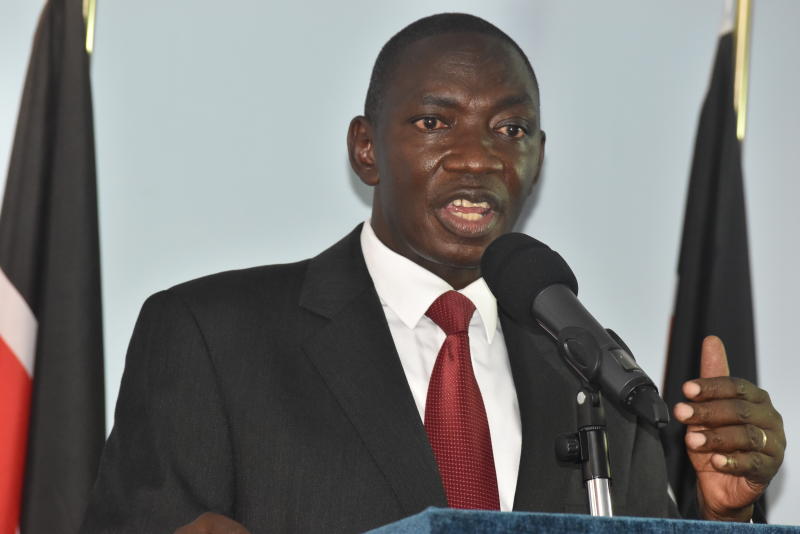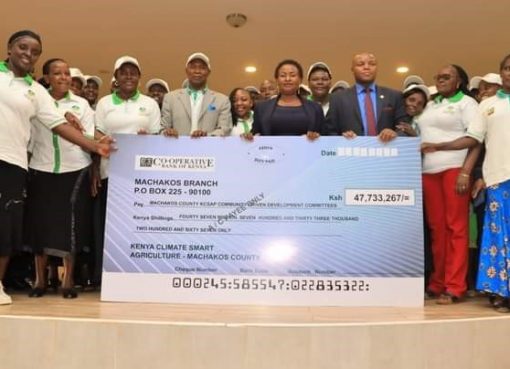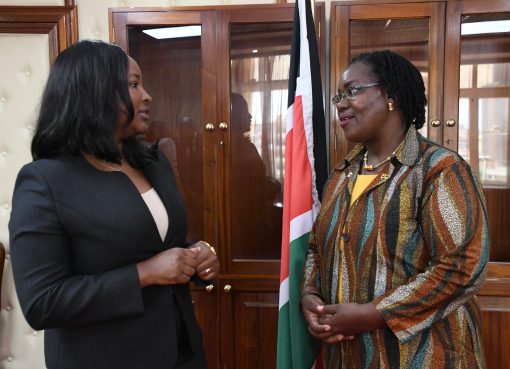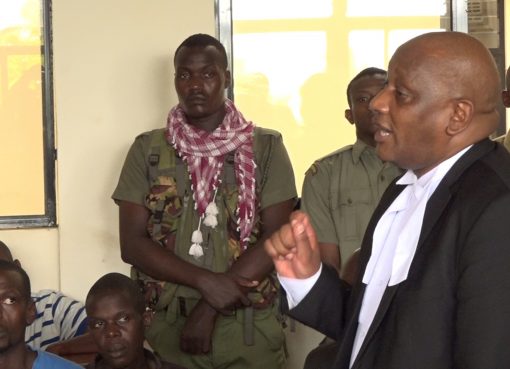The lives of Nairobi residents living in informal settlements have taken a turn for the better as the government continues with the various upgrading projects in these areas.
Government Spokesperson Col. (Rtd) Cyrus Oguna said that in line with Vision 2030, which seeks to elevate Kenya to middle income economy by the year 2030 by improving the quality of life of its citizens, the government has initiated various slum upgrading projects in the water, road, health, electricity and sanitation sectors among others.
Oguna said that on the health sector, the government through the Nairobi Metropolitan Services (NMS) has so far constructed 19 new level-two and level-three hospitals in the informal settlements and the aim is to complete the rest and make the total number of 24 hospitals.
Speaking at Mukuru Kwa Reuben while on an inspection tour of the projects, Oguna said that the government has drilled boreholes in most of the informal settlements while those which are not covered by the boreholes are served by the 42 NMS water bowsers which distribute water to the slum areas on a daily basis.
The government spokesperson said that in the long run the government intends to cover all informal settlements with clean tap water as detailed in Vision 2030’s social pillar.
“The government has initiated over 20 water supply projects in the informal settlements in Nairobi County and this has empowered the residents by reducing the number of waters borne diseases while also enabling the residents make savings on money, they were using to buy the water,” said Oguna.
He highlighted that there are many areas that did not have sewerage systems and construction of these sanitation facilities has improved the general hygiene of the residents.
“The residents working in conjunction with the government have vacated and demolished structures on road reserves which have paved way for construction of various roads in the informal settlements which has opened up the areas to more development,” he said.
“In the social pillar on education the government has ensured the 100 per cent transition which is aimed at creating a learned population with skills required to drive the vision,” said Oguna.
NMS Deputy Director in charge of Water and Sanitation Eng. Stephen Githinji said that per day they supply one million liters of water in the informal settlements insisting that this is a stop gap measure by the government before they reach the people with the formal infrastructure.
Githinji said that the projects will be completed by mid-2022 and the informal settlements will be completely transformed adding that the projects are being conducted in areas like Mathare, Dandora, Kayole, Soweto, Mwiki, Zimmerman, Githurai, Kawangware, Dagoretti, Kangemi among others.
“These projects are very close to the heart of President Uhuru Kenyatta and he comes to inspect them regularly and he recently came to open the new hospital here at Mukuru Kwa Reuben,” said Githinji.
He said that the Murang’a water project which is near completion will be bringing 140 million liters of water per day to Nairobi residents and this will solve the water shortages in the city.
Dilip Achaga a resident of Mukuru Kwa Reuben said that there has been tremendous transformation in the area with the construction of roads, hospitals, boreholes among other projects.
Achaga said that in the past they have been having water problems where they were buying a 20-liter water jerry can at sh.20 which made their cost of living very high.
“NMS has constructed various boreholes in the area with piped water being taken to even areas which are quite a distance from the boreholes and are now being served by water kiosks and we get the water free of charge,” said Achaga.
He added that sanitation was a big problem in the area with lack of toilets and drainage for waste water leading to various waterborne diseases but that has been addressed with the construction of the sewer line.
“As residents we would like to urge the government to consider giving us title deeds which will empower us to be in a position to build better houses to go along with the development that the government has initiated,” said Achaga.
Embakasi Sub-County Deputy County Commissioner (DCC) Gitonga Murungi said the area sits on community land, but since it has been heavily settled on, the government is in the early stages of issuing title deeds to the residents.
Nairobi Water and Sewerage Company Regional Manager in charge of informal settlements Kagiri Gicheha said that in the informal settlement they have the challenge of supplying water because people don’t have property numbers and they have come up with innovative ways, one of them being the pre-paid dispenser which is like a water ATM.
Gicheha said that they issue tokens to those living in the informal settlement and each time they want to draw water one comes and press the dispenser according how much one wants to spend.
“We set it a sh.0.5 that is 50 cents per 20-liter jerry can but for now since Covid-19 hit we are doing it for free and we have set it at zero until the pandemic is over,” said Gicheha.
He said that they have already done 10 water ATMs at Mukuru Kwa Reuben, constructed the Simplified Sewer System (SSS) which is a pilot project in efforts to improve sanitation for the urban poor in Nairobi County and a similar project is being undertaken in Kibera where three kilometers have been constructed.
“This area was declared a Special Planning Area (SPA) by the County government of Nairobi and when we did designs for water, sanitation and roads, NMS was charged by the president to implement that project and we are working hand in hand to give these services,” said Gicheha.
He added that they have eight different consortiums each working on a specific area be it roads, water, sanitation, housing, education among others so that the projects adopt a holistic approach.
By Joseph Ng’ang’a





